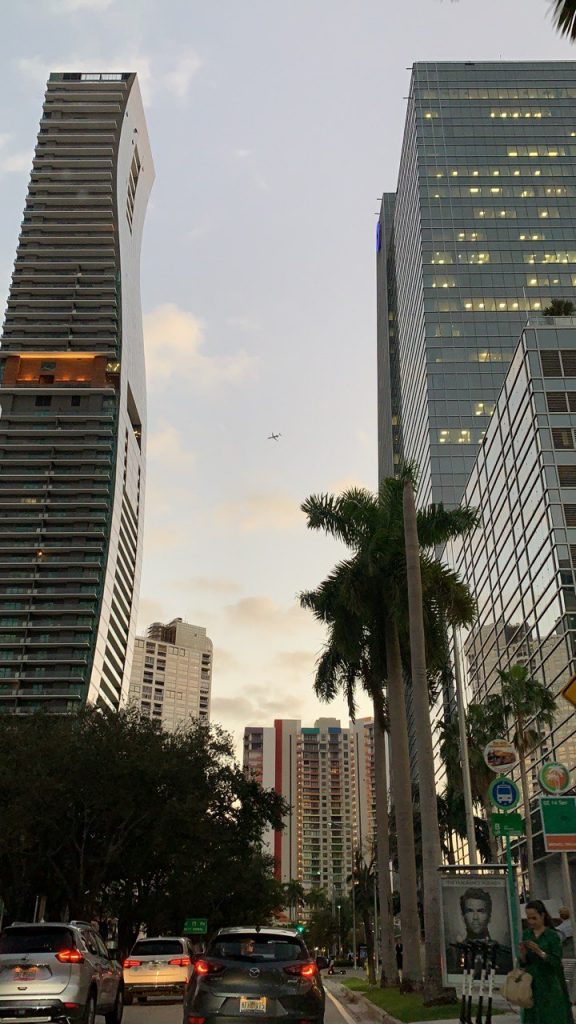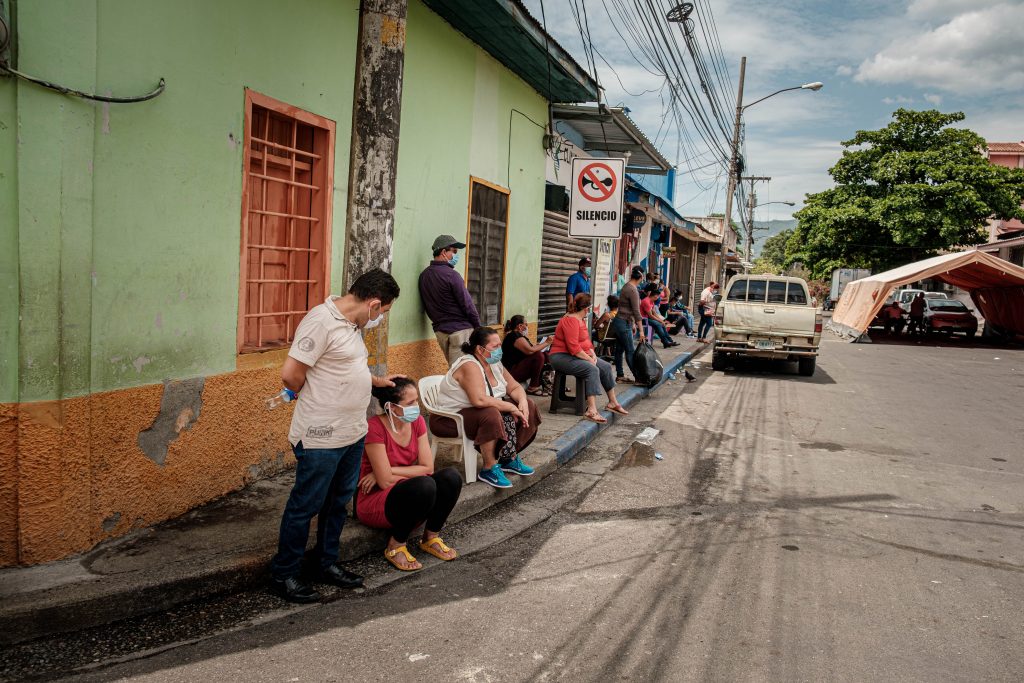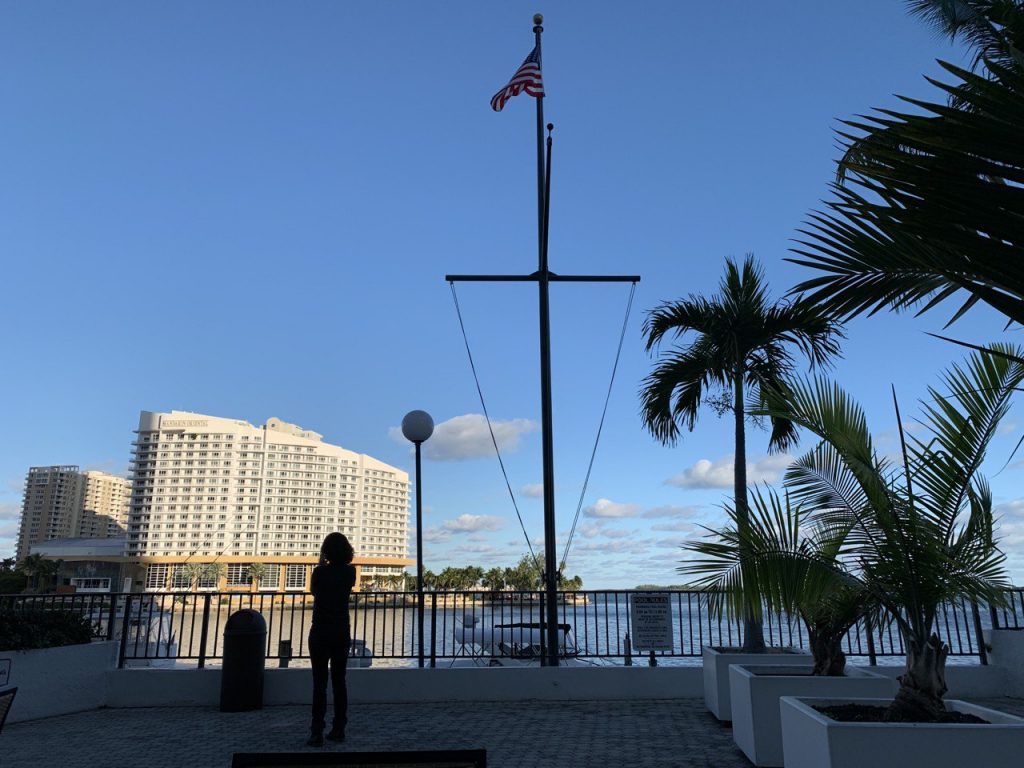In Honduras, the COVID-19 pandemic has met the world of fraud. A government purchase of mobile hospitals that may not exist, added to other irregularities in pandemic management, have unveiled a common practice in financial crimes: tax evasion and money laundering via shell companies. But, are those companies legal or illegal? How are they used to commit crimes? What is their role in the link between politics and organized crime?
Evana and Alex G. López have two registered companies in Florida. Alex is the president, secretary, director and registered agent of the Orlando-based company Elmed Medical, Inc. It has existed since 1998, and Elmed Medical would have been lost to the sea of Florida corporations in which one person holds every leadership role and there is little evidence of other past investments. But we know it now because it was decried by another company, SDI Global LLC, for copying SDI’s documentation and falsifying the purchase order for seven mobile hospitals for which Honduras pre-paid, meant to aid COVID-19 patients.
The purchase was approved in March by INVEST-H, an autonomous unit within the Honduran government that bids on and manages public projects. After that approval, the government paid out $21 million in advance for hospitals that were supposed to arrive in June, but still have not appeared. The director of INVEST-H, Marco Bográn, stepped down when it was revealed that the purchase order was falsified, although he claims the promised hospitals are still en route to Honduras on a ship coming from Turkey. A specialized criminal investigation unit in the Honduran police, la Agencia Técnica de Investigación Criminal (ATIC), has opened an investigation into the matter. The money paid for these hospitals amounts to 27% of the total budget earmarked to fight COVID-19 in Honduras.
This case has become known as “The Big Scam.” López’s company is understood to be a ghost, a shell. There are even hopes that U.S. authorities will investigate.
If proven to be true, this will be merely the latest act in a shadowy financial scheme more common than we think. Shell companies that launder money are part of the United States economy. People from all over the world — often, they are businessmen, politicians, drug cartels or terrorist groups — open such companies in places categorized as tax havens, countries like Switzerland or Bermuda, or within the U.S., certain states like Florida, New York, Delaware and South Dakota.
For instance, the Mexican cartel Los Zetas used shells to spend millions on racehorses in the U.S., as detailed by journalist Melissa del Bosque in her book Bloodlines. Because the companies had no apparent connection to the cartel, their purchase of horses raised no eyebrows and enabled the cartel to clandestinely convert drug proceeds into licit money. Another example is the case of Paul Manafort, ex-campaign manager for President Donald Trump, who laundered millions of dollars he made as a political consultant in Ukraine, for which he didn’t want to pay taxes. Manafort created companies in tax haven countries and, in those company’s names, bought real estate and luxury items in the U.S., thus returning his money to the U.S. economy without leaving traces of its origins. The scheme was only discovered when the U.S. Department of Justice undertook an investigation into possible unlawful connections between President Trump and Russian officials.
Shell companies are equally useful to a cartel boss, a Trump official, or any company seeking profit from the pandemic.
Between 1998 and 2019, before becoming the businessman behind what Hondurans now call “the Big Scam,” Axel López registered five different companies in Florida. The stated business of these firms includes exportations, beauty salons and technologies for disposal of medical waste, among others. Elmed Medical Systems Inc. and Vertisa Medical Waste Technologies LLC are registered to the same address, while another López firm, American Business Links Corporation, is registered to a different Florida address. Axel López shares some ownership and management roles with Evana López in American Business Leaks and Elmed Medical.
One particular type of U.S. corporate classification — the Limited Liability Company, or LLC — is frequently used to create shell companies. LLCs are not in themselves illegal, nor are they always used for illegalities. But they have characteristics that make them useful to financial fraudsters.
For example, an LLC is very easy to create; it is possible to do without even being in the U.S. It takes little time and requires scant information about the LLC’s managers or planned business activities. It’s easier and requires less information, in fact, than an application for a library card.

The cost to inscribe an LLC in the state of Florida is $125. After inventing a name for the company, an anonymous LLC creator then lists the new company under the name and address of a person who will serves as its ” registered agent,” often a lawyer contracted to provide this service. That person and address must be able to receive the company’s mail in Florida. Then, the creator fills out enrollment papers on a state-run website with this same information.
The name of the company’s true owner is not required at any point in the procedure. Neither are the names of a genuine manager or members of a board of directors.
According to Chris Quick, a former FBI agent who investigated white-collar crime and is now a private investigator at Quick Group, LLC in South Carolina, the anonymity of LLCs hinders investigation into possible criminal activity, because it’s difficult to retrace someone’s steps when you don’t know who you’re following.
An LLC “isn’t necessarily associated with the person who runs it,” Quick said. “And the owner of an LLC can be another LLC.” Like an onion, each added stratum gives further shield for whoever is at the center. Investigating such financial fraud forces investigators to “decipher each layer to finally get to the owners,” Quick said. “It creates layers of anonymity.”
When an LLC’s objective is to launder funds — for example, money stolen from state coffers via corruption, or the financing behind illegal groups — LLCs are often used for purchases that plug the cash back into the above-ground economy while hiding both its origins and the identities of the people behind it, as with the Zetas’ racehorses. If the purchase is an apartment or a yacht and the name on the deed is an LLC — not the corrupt politician or criminal — investigators will follow a money trail that ends in a lawyer hired to receive the LLC’s mail.
A 2010 report from the United Nations, certified by the U.S. Department of the Treasury, estimated that $300 billion in illicit funds passed through the U.S. financial system in that year alone.
 Hospital in San Pedro Sula. Photo: Deiby Yánez
Hospital in San Pedro Sula. Photo: Deiby Yánez In Honduras’ “Big Scam,” the mobile hospitals aren’t the only irregularity anchored to a company in Miami. Invest-H also bought $3.5 million of medical biosecurity equipment from another Miami firm called Access Telecom. The company is a registered dealer of cell phones and related electronics, not medical supplies. The purchase order, a publically available document, names Arturo Osmond Maduro Zelaya as the company contact for the transaction. Arturo Maduro is the nephew of former Honduran president Ricardo Maduro, but does not appear connected to the company or the medical industry. When faced with outcry before he resigned, Invest-H director Bográn admitted he had made an error in designating Arturo Maduro as the purchase order contact, since, “he has no responsibility in, nor he is part of, the company.”
According to public registries, Access Telecom was founded in 1999. Its current president is Abraham Benhamu. Its Miami address is the office number 82 in a building on the city’s Northeast side. From 2015 until 2017, office number 80 in the same building housed an LLC, called Distelsa, registered to Arturo Maduro.
Honduran professionals solicited quotes from other international companies and determined that the same biosecurity equipment purchased for $3.5 million could have been obtained at $1.7 million.
Meanwhile, the hospital system in Honduras is collapsing. More than 300 health workers have been infected, lacking necessary equipment to protect themselves from the virus.
A proposed law seeking transparency
A proposed law in the U.S. Congress, the Corporate Transparency Act of 2019, would mandate that beneficiary owners of new LLCs identify themselves. The Act would collect the information in a database available to authorities when investigations made that knowledge necessary.
Congresswoman Carolyn B. Maloney, the proposal’s sponsor, told Contra Corriente that such a law is long overdue. “The legal use of anonymous shell companies in the United States allows for criminal activity to go unpunished, with money launderers, human traffickers, and even terrorists hiding behind these shields,” said the congresswoman from New York. “For years, law enforcement has asked Congress to remove this road block by requiring the disclosure of beneficial owners of these LLCs.”
According to ex-FBI agent Quick, acheiving transparency with LLCs requires mandated disclosure of the identities of beneficial owners, along with the percentage of shares belonging to each owner. Such information would allow investigators to access the owners’ bank accounts to map the route of illicit money, for instance. “You have to know at least one end of the puzzle,” he said.
Congresswoman Maloney’s proposal faces some opposition from state governments across the U.S. that depend on revenue from LLC inscription fees and taxes. For instance, in the year 2012, the state of Delaware made $860 million from LLCs. Resistance also came from the American Bar Association, which argued the law would violate lawyer-client privilege.
Quick added that he sees legitimate justifications for the anonymity of LLCs. “If an LLC makes tens of millions of dollars, maybe [the beneficial owners] don’t want that to come back to them, if it could target them for corporate kidnappings, or tap them for pressure to donate to charities or make certain investments.”
Behind it all is a reality marked by paradox. Hondurans watch hopefully as the U.S. justice system prosecutes corrupt politicians and narcotraffickers the Honduran system does not touch. But meanwhile, the U.S. financial system is being used as a vehicle for commiting acts of fraud using stolen Honduran taxpayer money, and U.S. authorities have been incapable of reining that in.
This reporting was supported in part by an Adelante reporting grant from the International Women’s Media Foundation






